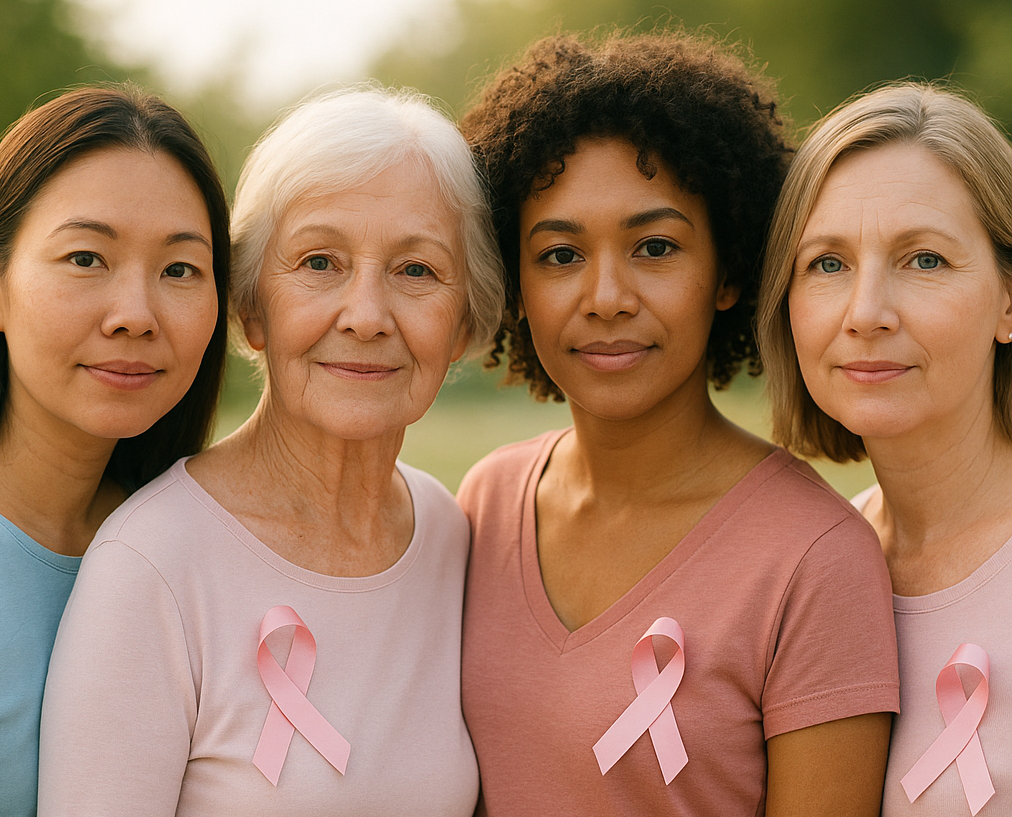July 4, 2024


Breast cancer affects people of all ethnic groups, at any age, but people of color have more disparities in screenings, care, and treatment than their white counterparts. Even with major advancements in research and treatment, there are still shortcomings in ethnic communities.
As a healthcare professional, I have provided care to people who were diagnosed with breast cancer. It is even more difficult when people close to you are diagnosed —my nursing manager, a close childhood friend, and my grandmother —all different ages, all different lifestyles, and all women of color. All diagnosed with breast cancer, at different stages, with different outcomes. In this blog, we will highlight how people of color are affected by breast cancer and how you can increase your, or someone you know, chances at survival. Every informed choice brings you closer to resilience and hope.
Let's commit to knowledge and the well-being of every woman, advocate for breast cancer care, and forge a path toward healthier communities.
Prioritizing yourself is not selfish. It is necessary!
Have you ever wondered why people of color are diagnosed with more aggressive types of breast cancer? While there have been advancements in breast cancer research and treatments, women of color still face poorer outcomes than white women. Factors include limited access to quality healthcare and some biological factors, like an increased risk of breast cancer gene mutations.
The Breast Cancer Research Foundation, BCRF, have performed studies noting that black women have an increased diagnosis rate of rare mutated breast cancer genes that are associated with more aggressive types of breast cancer. Black women are not the only ones who face biological challenges. Indigenous Women are diagnosed with breast cancer at a lower rates, but are diagnosed with more aggressive later stages. This could be linked to decreased access to quality healthcare. According to the BCRF, some AAPI women groups experience higher rates of late-stage diagnosis, while others face lower survival rates, despite medical advancements. The BCRF also states, Hispanic/Latina women are more likely to be diagnosed at a younger age with more aggressive disease, such as triple-negative breast cancer, which has fewer treatment options.
For more information on research challenges, as well as updates, click here.
Limited access to affordable high quality healthcare negatively impacts early breast cancer screening, preventive measures, treatment, and follow up care, often leading to many women of color being diagnosed with a later stage, and more aggressive breast cancer. However, knowledge and early detection is POWER! Early detection measures, like self breast exams and regular breast cancer screenings, can detect cancer leading to better outcomes.
Other factors that play a role are chronic illnesses, family history, and lifestyle choices. Many minority women are considered obese, and are more likely to be diagnosed with diabetes than white women, increasing the risk. Changes in diet and participating in daily exercise can lower the risk. It doesn’t have to be perfect, small changes add up – add more fruits and veggies at meal time, or take a daily 10 minute walk after lunch.
Know your family history. Ask yourself: has anyone in your family—like your mom, grandma, or aunt on either side—been diagnosed with breast cancer in the past? If so, follow up with a doctor and discuss an early mammogram or even a blood screening, as family history is an increased risk. Even though a person may have multiple risk factors, it does not necessarily mean they will absolutely develop cancer. And vice versa, a person with no known risk factors can still develop breast cancer. That is why early screening is key!
Another threat to early detection is discrimination in health care. I get it, even as an RN, I have experienced it myself. But, do not let it hinder you or your family from seeking the proper care. Do your research and advocate for yourself—you matter! Look for local support groups or voice your concerns with a close friend or family member—because it takes a village. Here at HMC, we are helping close the gaps in health outcomes, by empowering and encouraging every woman to receive timely and effective screenings and support.
Prevention and early detection is POWER for surviving breast cancer. Prioritizing your breast health is an empowering act of self-care and a significant step toward a long, vibrant life. Regular breast cancer screening, such as annual mammograms for those over 40, is one of the most effective tools for early detection. Treatment options are greater and outcomes are most successful, when found early. Alongside these screenings, maintaining a healthy lifestyle through physical activity, a balanced diet, and limited alcohol consumption can further reduce your risk. By being proactive and informed, you can take control of your well-being, find peace of mind, and create a healthier future for you and your family.
Medical Disclaimer
This article section is for educational purposes only and is not intended as medical advice. Content in this section should never replace conversations with your medical team about your personal risk, diagnosis, and treatment. Always speak to your doctor about your individual situation.
We're here to assist you with any questions, support, or partnership inquiries – reach out to us today.